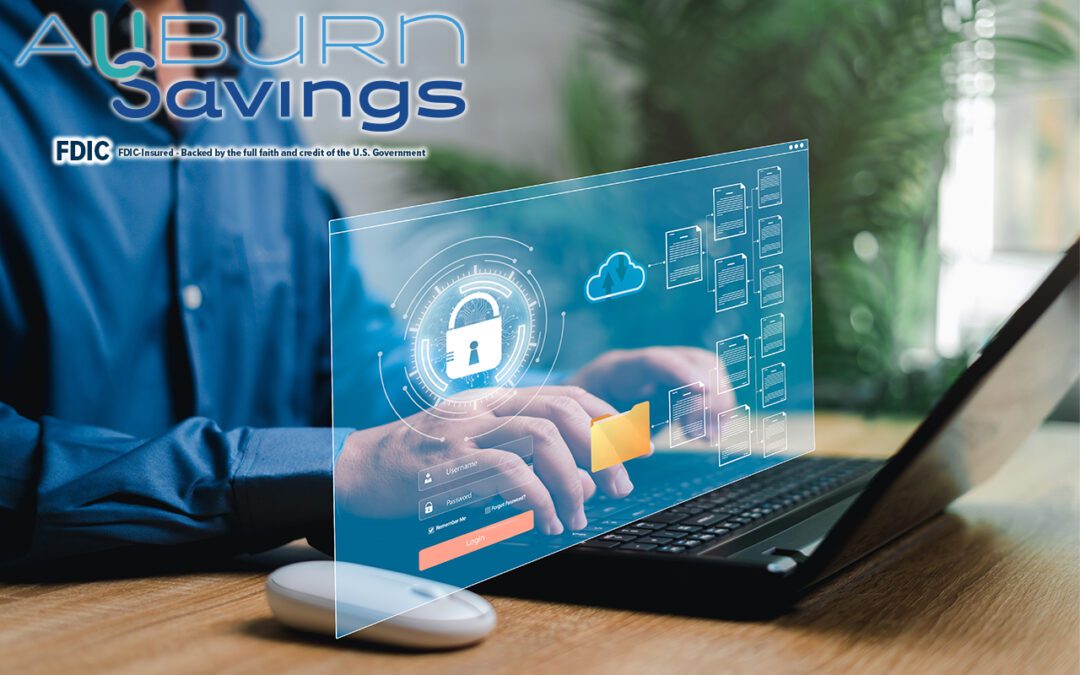October is Cybersecurity Awareness Month, a time dedicated to raising awareness about the importance of protecting ourselves and others from the ongoing threats in the digital world. In today’s age it is more critical than ever to be aware of the resources available to stay safe online.
Understanding Cyber Threats: One of the easiest ways to stay safe and aware of cyber threats is by staying up to date on the latest trends and types of scams that are occurring.
Phishing Attacks: A type of attack that uses fraudulent emails, text messages, phone calls, or websites to trick people into sharing personal information such as a social security number or bank account number.
- Example: You receive an email that looks like it’s from your bank, asking you to verify your account information. The email contains a link that directs you to a fake website designed to steal your personal information.
Malware: This is software that is downloaded onto your computer or mobile device and is specifically designed to damage or gain access to your private information on your device.
- Example: You are browsing the internet when a pop-up message appears warning you that your computer is infected with multiple viruses. The message urges you to download and install specific antivirus software to remove the threats. The software appears legitimate, but when you download it it’s malware.
Ransomware: A type of malware that is designed to block access to information on your device until a sum of money is paid. Often personal information like account numbers and passwords are the types of information withheld.
- Example: You open an email attachment that looks like an invoice, but it installs ransomware on your computer. The ransomware encrypts your computer and demands payment for the decryption key.
Social Engineering: This is a manipulation technique that exploits human error to gain private information, access, or valuables.
- Example: You receive a call from someone claiming to be from your company’s IT Department. They inform you that there has been a security breach, and they need to verify your login credentials to secure your account. The caller sounds professional and provides some basic information about you which makes the request seem more legitimate.
Tips for Staying Safe Online
Use Strong and Unique Passwords:
- Creating a strong password is your first line of defense against possible cyber threats. When creating a password be sure to use a combination of letters, numbers and special characters and avoid using easily guessable information like birthdays. You should also consider using a password manager to keep track of your passwords securely.
Enable Two-Factor Authentication:
- Using two-factor authentication adds an extra layer of security by requiring a second form of verification in addition to your password such as a text message, authentication app, or biometrics. This makes it much harder for attackers to gain access to your accounts.
Be Wary of Suspicious Emails and Links:
- Be sure to avoid clicking on links or downloading attachments from unknown or untrusted sources.
Regularly Update Software:
- Regular updates to your software, including your browsers and applications, ensure you have the latest security updates. Cybercriminals often look for vulnerabilities in outdated software to gain access to your devices.
Back Up Your Data:
- Regularly back up important data to an external drive or cloud service to prevent data loss in case of a cyber-attack.
Monitor Your Financial Accounts:
- Look at your bank statements, credit reports, and online accounts often for any unusual activity. If there is any unusual activity report it immediately to secure your accounts and mitigate the damage that has already occurred.
Stay Informed
- Stay up to date on the current scams and cyber-attacks that people are falling victim to. Be sure to also share this information with friends, family, and coworkers to help spread awareness.
By following these tips and learning about the different types of scams you can significantly reduce your risk of falling victim to cyber-attacks. Remember that cybersecurity is a shared responsibility and keeping yourself informed is the key to protecting yourself and others online. Stay safe and secure this Cybersecurity Awareness Month.

